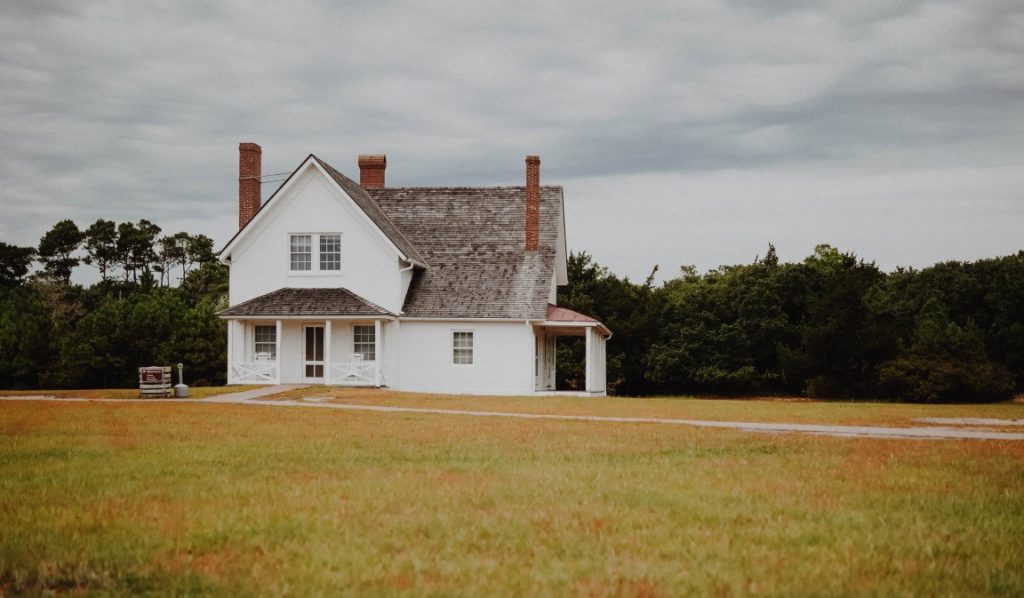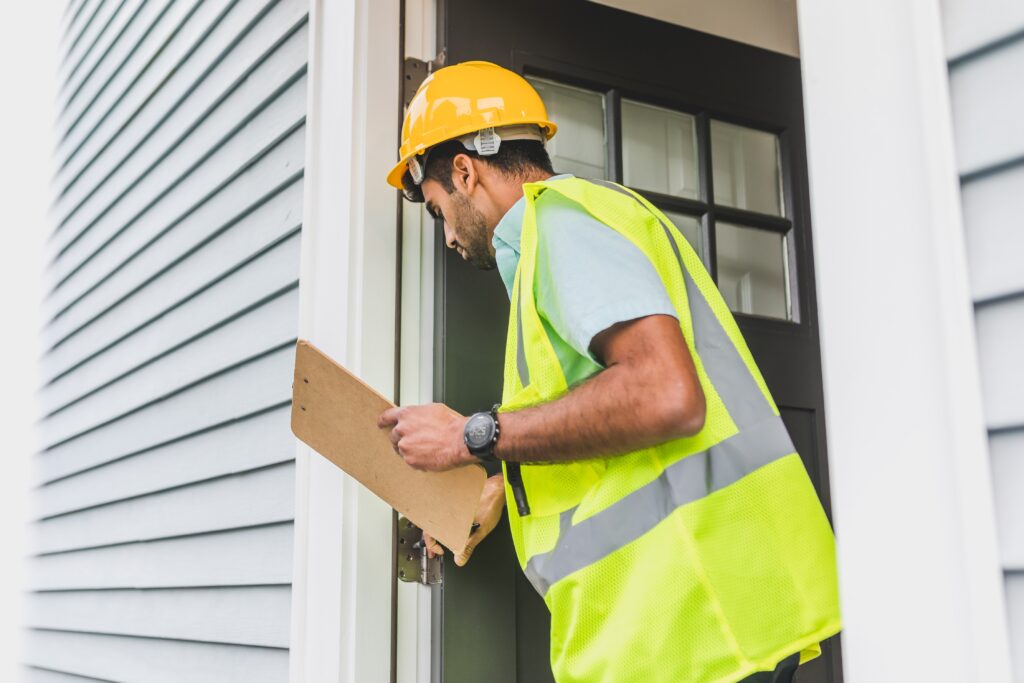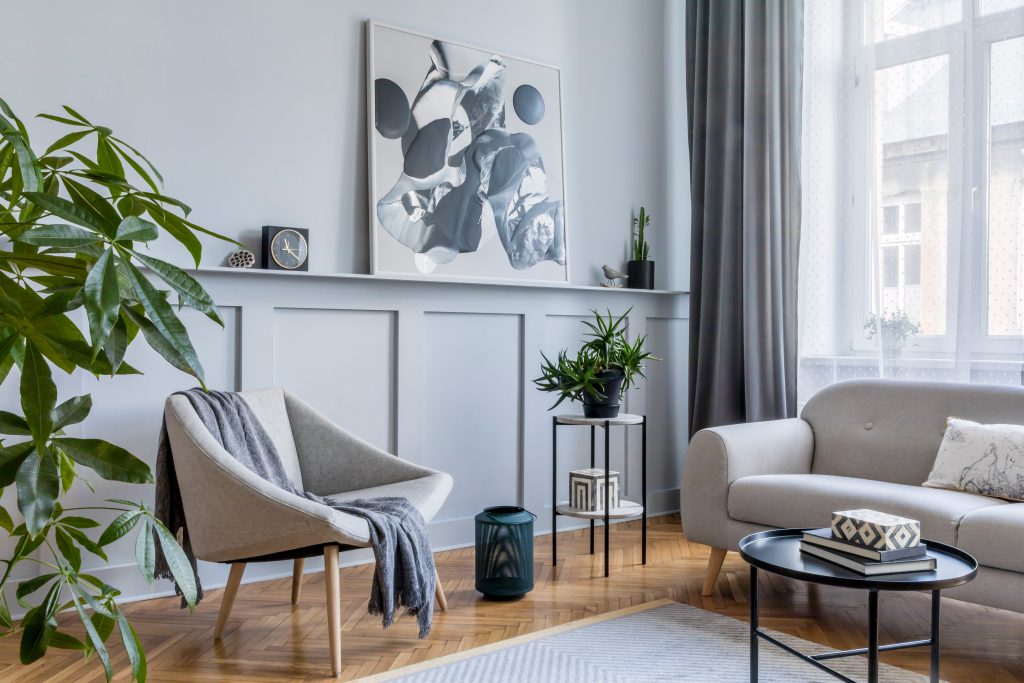Looking to give your home a fresh new look but unsure where to start or how much it will cost? While refurbishing a house can seem daunting, it doesn’t have to break the bank. With some smart planning around budget, materials and timelines, you can create a space you love.
This guide takes you through everything you need to consider when taking on a home refurbishment project, from estimated costs of popular remodels to tips for keeping expenses affordable and the options available should you decide against a refurb.
How much does it cost to renovate a home?
There’s no one-size-fits-all approach when it comes to the costs involved with renovating your home, but there is a ballpark figure you can use as a rough marker. The table below shows the average cost for materials and labour, for a two-bedroom home renovation.
| Item | Average cost (+VAT) 2-bed |
| New gas supply | £1,125 |
| New heating system | £4,125 |
| Rewiring | £4,312.50 |
| Windows | £3,187.50 |
| Replaster walls | £3,000 |
| Replaster walls & ceilings (re-skim existing) | £9,000 |
| Replaster walls & ceilings (hack off existing) | £18,000 |
| Replace skirting throughout | £2,250 |
| Paint walls, ceilings doors and skirting | £4,500 |
| New cloakroom w/c (including tiling) | £1,500 |
| New kitchen | £13,125 |
| French doors | £1,875 |
| Kitchen extension (12 m2) | £14,625 |
| Skirtings for new extension | £262.50 |
| Knock down walls | £1,312 |
| New floors | £2,590 |
Refurbishing your home is a significant undertaking that requires careful planning and budgeting. Costs can escalate rather quickly depending on the scale of your remodel and choices of materials, fixtures and finishes.
Use the average costs for a two-bedroom refurbishment shown in the table as a rough guideline when mapping out your own project, remembering that unique factors like location, property size, and choice of materials will all impact the final cost significantly vs what’s in the table.
The total bill can climb to well over £80,000 for extensive renovations and sometimes into six figures. However, by doing some of the work yourself and opting for a simple minimalist style and fittings, upgrading your space doesn’t have to drain your bank account.
Factors to consider when renovating your house
The size and layout of your existing property will determine how much work is required for renovations. Generally, the bigger the home, the more expense involved.
The scope of work and specifics of what you want done are also hugely influential. For instance, a new coat of paint and flooring will be far less than a major extension or plumbing overhaul. Then there’s the choice of fixtures, finishes and appliances, which makes a difference too – higher-end materials, brands and modern technological upgrades all add to the price tag.
Geographic location also plays a role, as labour and material rates can be higher in some regions. And don’t forget that timelines affect budgets as well, with some projects done piecemeal over years can be affected by rising cost of materials and labour.
Being cognisant of these cost drivers from the start means you can plan and make decisions accordingly, so you go into your refurbishment project well informed and ready to avoid shocks further down the line after work is already underway. Discussing your plans with contractors will also bring more clarity and understanding of the specific work required for your property.
How can I fund a house renovation?
Paying for refurbishment requires thorough preparation. Saving up income over time means you can self-fund smaller projects. At the same time, using any equity in your home by remortgaging may be able to help unlock cash for larger renovations. Compare interest rates and fees if pursuing this route and make sure it’s the right move for you.
Unsecured bank loans specifically for home improvements are another option – shop around to get the best deal, using comparison websites and talking to brokers. You can also look at tapping into retirement savings if that avenue is available, although, again, think long and hard before deciding whether to use this source of income as it could have negative consequences in later life.
Creating a financial plan factoring in all of the projected costs based on real quotes from contractors is important, as it makes sure you have accessible funds before kicking off the work. Prioritising the work into must-haves versus nice-to-haves is also an option if money is tight and can help you make those all-important decisions about your refurbishment project.
What can I expect to pay in labour costs?
Labour costs vary, depending on the skill level and location. In London, for example, tradespeople are likely to command higher prices than those in rural areas. The table below has a breakdown of some of the average costs involved with labour on a house refurb. Remember, these are just an approximation. For actual costs, you should contact a few local tradespeople and get quotes.
| Tradesperson | Range – low (per day) | Range – high (per day) | Average cost (per day) |
| Apprentice | £120 | £150 | £135 |
| Carpenter | £200 | £250 | £225 |
| Double glazing installer | £200 | £250 | £225 |
| Electrician | £250 | £400 | £325 |
| General builder | £200 | £250 | £225 |
| Labourers | £150 | £180 | £165 |
| Painter and decorator | £150 | £250 | £200 |
| Plasterer | £200 | £250 | £225 |
| Plumber | £250 | £400 | £325 |
| Roofer | £200 | £250 | £225 |
| Tiler | £200 | £250 | £225 |
How much will refurbishing my home increase its value?
Deciding whether to renovate your home with an eye on increasing the property’s value is tricky. Not all upgrades result in equal return on investment (ROI). While a full extensive renovation can yield over 70% return on spend, small cosmetic refreshes may only see marginal boosts around 4%.
Scale, home type, existing condition and market also have an impact. Kitchen and bathroom refurbs tend to have the highest resale value, with a new kitchen potentially adding between 10 – 12% and a new bathroom adding 4 – 5% to the property sale price. loft and basement conversions are also effective in increasing value.
Remember that your personal enjoyment during those extra years living in the property also holds meaningful value. Not all costs will be directly recouped, but strategic renovations do often increase the value of your home.
Do I need to refurbish my home before selling?
Deciding whether to renovate your property before putting it on the market is a common dilemma. While it can be tempting to make updates to maximise the sale price, extensive fixes aren’t always required.
For homes in good structural condition with no major repairs needed, making simple refreshes like paint, landscaping, and decluttering are often sufficient pre-sale preparation. Even extensively dated properties can sell to buyers eager to put their own stamp on interiors.
At the same time, homes needing functional improvements like roof replacement or rewiring should be dealt with, as any negative inspection reports will likely deter buyers. And as the saying goes, curb appeal counts – external facelifts to tidier outdoor areas generate more interest and leave a lasting first impression.
When weighing up renovation prices against the costs, focus first on essential fixes throughout and cosmetic boosts to selling points like kitchens, bathrooms and outdoor space. This way, you can show your property in its best light.
What options do I have for selling my home quickly?
Whether your house needs minor fixes or major renovations, there is an appealing option available for selling your home quickly without fronting the cost of upgrades. Property Rescue buys all types of homes, especially those in need of work. We can exchange contracts in as little as 48 hours or in a timeline of your choice, and we also cover all the costs so you don’t pay anything.
There’s no need to put the property on the traditional sales market and hope that buyers are looking for a fixer-upper project. Instead, you get a guaranteed price and can enjoy more peace of mind knowing that your home already has a dedicated cash buyer.
Summary: How much does it cost to refurbish a house
Refurbishing your home is a major undertaking requiring thoughtful planning and realistic budgeting. While expenses can add up, strategic upgrades do raise property value and sale potential. If you’re a seller who needs quicker options, Property Rescue purchases homes as-is, providing a fast, guaranteed sale. Get a free, no-obligation quote to see how much we can pay for your home, refurbished or not.





